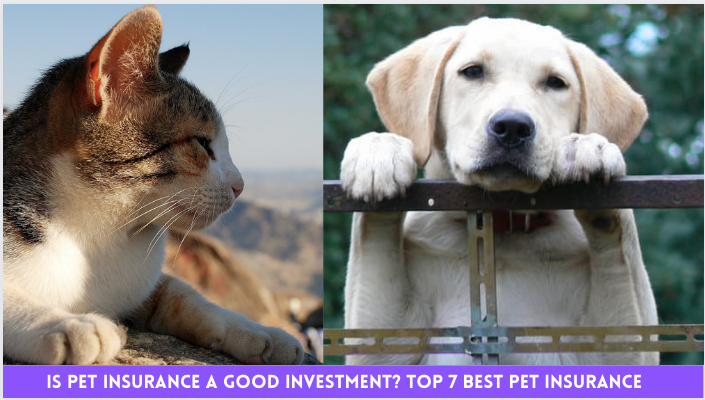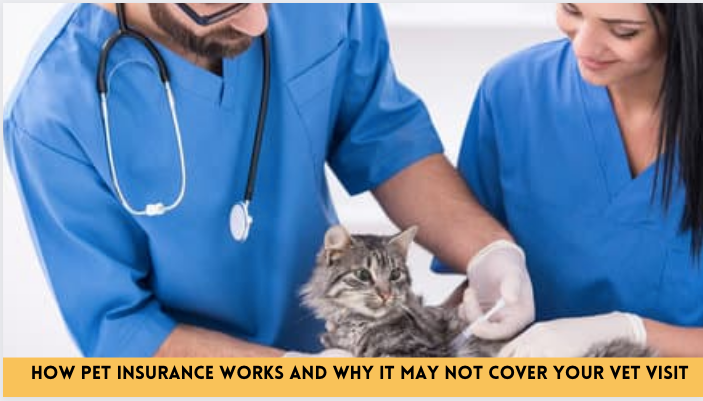Pets
Nationwide Pet Insurance vs Trupanion: Which Is Best?

Nationwide Pet Insurance vs Trupanion: Which Is Best?
We’re sure you’ve heard the saying, “A dog is man’s best friend.” If you’ve got a four-legged furry friend in your life, then you’ll know that pets offer a life of joy and affection.
However, pet health can be expensive. Without insurance for pets, it might throw you into financial ruin.
If you are looking for insurance for your pet, make sure to compare nationwide pet insurance vs Trupanion. They’re two of the top pet insurance options.
Read on as we walk you through their offerings and help you decide which company and insurance plan works best for you.
Coverage and Plans
When it comes to choosing insurance for pets, both Nationwide and Trupanion have a wide variety of coverage and plans to choose from. Nationwide offers comprehensive plans that start at just $22 per month.
It covers accidents, illness, preventive care, and even some alternative therapies. They also cover regular and emergency care, as well as conditions that are inherited or born with.
Trupanion offers similar coverage. Plans start at $59 per month and cover illnesses, accidents, and some conditions that are passed down or born with. They also offer a “Reimbursement for Life” plan that offers lifelong renewability.
Overall, both Nationwide and Trupanion have full coverage and plans that can be adjusted to fit any budget.
Enrollment Age and Waiting Periods
Consider enrollment age and waiting periods when choosing between the two. Nationwide requires that your pet be enrolled within the first six weeks of their life. Also, there is a 21-day waiting period for some types of coverage.
Trupanion has a slightly higher enrollment age but only requires a 15-day wait. Depending on your pet’s age, one plan is more ideal than the other.
One plan may also be more comprehensive than the other. Depending on what type of coverage you want for your pet, your age requirements may differ from those of other pet owners.
So, when you’re looking for insurance for pets, it’s important to enroll your pet when it’s young and know how long the waiting period is.
Deductibles and Reimbursement
Nationwide pet insurance has a variety of deductibles to choose from to meet all budgets. Each plan has a different amount for the deductible and how much it pays for regular care, accidents, and illnesses. Generally, the higher the deductible, the lower the premium cost.
On the other hand, Trupanion tends to have lower deductibles but higher reimbursement levels. This means you could pay a higher premium initially, but you will likely receive a higher reimbursement for claims.
Both companies offer good coverage with deductibles and reimbursements that vary. It’s best to research and shop around to determine which is the best fit for your needs.
Check Customer Satisfaction and Reviews
When trying to decide which insurance to go with, it is important to research customer satisfaction and reviews. Nationwide Pet Insurance has been around for a while and offers a variety of coverage levels.
Reviews show that a lot of customers have been happy with their coverage and have good things to say about customer service. Trupanion also offers insurance and has much higher customer satisfaction than Nationwide.
For reviews, many customers have had positive experiences with Trupanion. They have seen their claims go through quickly and easily without any issues.
Customer satisfaction and reviews are crucial when choosing the best pet insurance company. Trupanion appears to be the better option, as more customers have been satisfied with their service.
Maximum Coverage
When it comes to insurance for pets, Nationwide and Trupanion both offer maximum coverage. With Nationwide, your pet will be covered for up to 90% of eligible medical costs. It covers accidents or illnesses (after the deductible) up to $20,000 per incident.
With Trupanion, coverages of up to 90% for eligible medical expenses are available. But the company also provides unlimited coverage depending on the plan you choose. Both companies also offer benefits such as:
- coverage for preventive care
- prescription medications
- cancer treatments
However, Trupanion also adds additional benefits such as coverage for alternative treatments. This includes hydrotherapy, acupuncture, and chiropractic care. At the end of the day, you’ll need to look at each company’s insurance for pets plan and decide which one is best for your pet and your budget.
Add-on Options
Nationwide pet insurance and Trupanion both offer add-on options. These added options make insurance for pets more comprehensive and often cover treatments not typically included in most standard insurance plans. With Nationwide pet insurance, you can add on:
- Wellness Coverage
- Cat Breeding
- Warming coverage
- Accident-Only Coverage
These can be tailored to fit your pet’s needs. Trupanion offers add-ons such as:
- Felines Enhanced Coverage
- Nail Trims
- Ear Cleaning
- Knee and Cruciate Coverage,
- Behavioral Therapies
Each option has its pros and cons, and pet owners should make an informed decision based on their pet’s needs and budget. Ultimately, each insurance plan should be tailored to meet the specific needs of the pet and the pet owner.
Geographic Coverage
When it comes to geographic coverage, it is important to compare Nationwide Pet Insurance and Trupanion side by side. Nationwide Pet Insurance is available in all U.S. states, making it a good option for those who own a pet that is likely to travel across the country.
On the other hand, Trupanion only operates in the U.S., Mexico, Canada, and Puerto Rico, meaning some places may not be served. Additionally, Nationwide offers more options for yearly and lifetime coverage plans, while Trupanion offers more choices for short-term coverage plans.
Ultimately, the best choice will depend on the pet owner’s individual needs and budget.
If wide geographic coverage is important, Nationwide may be the best option, while if short-term coverage plans are needed, Trupanion might be the best answer. Regardless, it is important to compare both plans carefully before deciding.
A Guide Between Nationwide Pet Insurance vs Trupanion
Nationwide pet insurance vs Trupanion may both offer plans to fit your needs, but it all depends on you and your pet. Do your research and see which one has the features that suit you best.
Whichever one you choose, you can trust that your pet will be in safe hands with either one. So why wait? Get started on choosing the right plan today!
For more informative topics, check out the rest of our site.
Feels free to share this article!
We make it our mission to give animal lovers the most up-to-date and accurate information possible while maintaining our commitment to justice.
Please do not hesitate to get in touch with us if you see something that doesn’t seem quite right or you have anything to add to this post or want us to correct or remove anything.
If you are interested in advertising with us. Please get in touch with us!
Pets
The Healing Power of Pet Memorials: How They Help Us Cope

Losing a pet is one of the most heartbreaking experiences anyone can endure. Pets are not just animals; they are cherished family members who provide unconditional love, companionship, and joy. When a pet passes away, the grief can be overwhelming, leaving a deep void in our hearts.
However, many people find comfort in pet memorials, which offer a tangible way to honor and remember their beloved companions. Pet memorials and pet memorial gifts play a crucial role in the healing process, helping individuals cope with their loss in meaningful ways.
The Emotional Benefits of Pet Memorials
Grief is a natural response to loss, and everyone experiences it differently. Some people may find solace in sharing memories with friends and family, while others might prefer solitude and reflection. Regardless of the grieving style, pet memorials can provide emotional benefits that help ease the pain of loss.
1. Creating a Lasting Tribute:
Pet memorials allow pet owners to create a lasting tribute to their departed pets. Whether it’s a simple photo frame with a favorite picture, a custom-engraved stone, or a more elaborate memorial garden, these tributes serve as a permanent reminder of the love and bond shared. By having a designated space or item dedicated to the memory of a pet, owners can revisit those cherished moments and feel a sense of connection even after their pet is gone.
2. Acknowledging the Loss:
One of the significant aspects of the grieving process is the need to acknowledge the loss. Pet memorials help validate the grief that comes with losing a pet. In a society that sometimes downplays the significance of pet loss, having a pet memorial or receiving pet memorial gifts can affirm that the grief is real and worthy of attention. It gives individuals the opportunity to openly mourn and honor the importance of their pet’s life.
3. Finding Comfort in Rituals:
Rituals play a crucial role in the grieving process. They provide a structure for expressing emotions and saying goodbye. Pet memorials often involve rituals, such as lighting a candle, planting a tree, or holding a small ceremony in memory of the pet. These rituals can offer comfort and closure, allowing pet owners to process their emotions in a controlled and purposeful manner.
4. Preserving Memories:
Over time, memories of a beloved pet may fade, but pet memorials help keep those memories alive. By creating a physical reminder, such as a memorial plaque, a piece of jewelry containing the pet’s ashes, or a custom portrait, owners can ensure that their pet’s memory remains vivid and cherished. These memorials serve as a source of comfort, reminding owners of the happy times and the love they shared with their pet.
How Pet Memorial Gifts Aid in Healing
In addition to personal memorials, pet memorial gifts can also play a significant role in the healing process. When friends and family offer pet memorial gifts, they provide not only a token of remembrance but also a gesture of support and understanding.
1. Offering Support:
Receiving pet memorial gifts from loved ones can be a comforting experience. It shows that others recognize the depth of the loss and are there to offer support. These gifts, whether they are sympathy cards, personalized keepsakes, or memorial jewelry, can provide solace during a difficult time. They serve as a reminder that the pet was loved and that the grief is shared by others who care.
2. Encouraging Expression:
Grief can sometimes be an isolating experience, particularly when others may not fully understand the bond between a person and their pet. Pet memorial gifts encourage the expression of emotions, allowing grieving pet owners to share their feelings and memories. This can be an essential step in the healing process, as it helps individuals process their grief rather than keeping it bottled up inside.
3. Creating New Traditions:
Pet memorial gifts can also inspire the creation of new traditions that honor the memory of the pet. For example, a personalized ornament or a custom photo book can become a cherished part of holiday celebrations, ensuring that the pet’s memory is kept alive year after year. These traditions can bring comfort and a sense of continuity, helping individuals cope with the loss while still feeling connected to their pet.
4. Promoting Healing Through Art:
Many pet memorial gifts involve artistic expression, such as custom portraits, engraved stones, or hand-crafted urns. Engaging with art can be a therapeutic way to process grief. The beauty and creativity of these gifts can bring peace to a grieving heart, offering a tangible representation of the love and bond shared with the pet.
Conclusion
The loss of a pet is a deeply emotional experience, but pet memorials and pet memorial gifts can provide a pathway to healing. They offer a way to honor and remember the special bond shared with a beloved pet, helping to ease the pain of loss. By creating lasting tributes, acknowledging the grief, and encouraging the expression of emotions, these memorials play a vital role in the grieving process.
Whether through personal rituals or the support of loved ones, pet memorials help us cope with the loss of our furry friends and keep their memories alive in our hearts forever.
Pets
Can Pets Carry Bed Bugs? Facts You Need to Know

Bed bugs are a growing concern for many homeowners and renters, and it’s natural to wonder if our beloved pets can also be affected by these pesky insects.
As a leading pet blogger and writer, I’m here to provide you with a comprehensive guide on whether pets can carry bed bugs and what you can do to protect your furry friends.
Can Pets Carry Bed Bugs?
The short answer is yes, pets can carry bed bugs. While bed bugs primarily feed on human blood, they are not exclusive to humans and can also feed on the blood of animals, including pets. Pets such as dogs, cats, rabbits, and even birds can become infested with bed bugs.
Bedbugs are the only animal that can send a landlord or house owner out of their own house. I once read that if there’s a nüclear êxplosiœn only two animal will survive
You got it right – Bedbugs and Cockroaches , they’ll survive any level of nüclêar… pic.twitter.com/SRetCw0dhy
— NaijaFarmer (@Nig_Farmer) March 23, 2024
Bed bugs are adept at hiding and can easily hitch a ride on your pet’s fur or in their bedding. Once they’ve made their way into your home, they can quickly spread to other areas, including your own sleeping quarters.
How Do Pets Get Bed Bugs?
Pets can pick up bed bugs in a variety of ways. The most common ways include:
- Visiting Infested Locations: If your pet accompanies you to a location that is infested with bed bugs, such as a hotel, motel, or even a friend’s home, they can pick up the bugs and bring them back to your own home.
- Contact with Infested Animals: If your pet comes into contact with another animal that is infested with bed bugs, they can also become a carrier.
- Secondhand Furniture or Bedding: Bed bugs can hide in used furniture, mattresses, or bedding, and if your pet comes into contact with these items, they can pick up the bugs.
- Traveling: If you take your pet with you on trips, they can pick up bed bugs in hotels, motels, or other accommodations that may be infested.
Signs of Bed Bug Infestation in Pets
Identifying a bed bug infestation in pets can be challenging, as the signs are often subtle. However, some common signs to look out for include:
- Visible Bed Bugs: You may spot the actual bugs crawling on your pet’s fur or in their bedding.
- Bites: Bed bug bites can cause itchy, red welts on your pet’s skin, similar to those seen on humans.
- Fecal Stains: Bed bugs leave behind small, dark fecal stains on surfaces where they hide.
- Molted Skins: As bed bugs grow, they shed their exoskeletons, which can be found in your pet’s bedding or sleeping areas.
If you suspect your pet may have a bed bug infestation, it’s important to contact a professional pest control expert for an inspection and proper treatment.
Protecting Your Pets from Bed Bugs
To protect your pets from bed bugs, it’s important to take proactive measures. Here are some tips:
- Regularly Inspect Your Pet’s Bedding and Sleeping Areas: Carefully examine your pet’s bedding, crate, and other sleeping areas for signs of bed bugs, such as the bugs themselves, fecal stains, or molted skins.
- Vacuum Regularly: Regularly vacuuming your pet’s sleeping areas, as well as the rest of your home, can help remove any bed bugs or their eggs.
- Use Bed Bug-Resistant Bedding: Consider using bed bug-resistant bedding or covers for your pet’s sleeping areas to make it more difficult for the bugs to hide and thrive.
- Treat Infestations Promptly: If you do find evidence of a bed bug infestation, it’s important to act quickly. Contact a professional pest control expert to properly treat the issue and prevent it from spreading.
- Limit Your Pet’s Exposure to Infested Areas: If you’re aware of a bed bug infestation in a location your pet may visit, such as a friend’s home or a hotel, try to limit your pet’s exposure to that area.
By following these steps, you can help protect your pets and your home from the unwanted presence of bed bugs.
Frequently Asked Questions
1. Can bed bugs live on pets?
Yes, bed bugs can live on pets, although they prefer to feed on human blood. Pets such as dogs, cats, rabbits, and even birds can become infested with bed bugs.
2. How do I know if my pet has bed bugs?
Signs of bed bug infestation in pets include visible bugs, bites, fecal stains, and molted skins. If you suspect your pet has bed bugs, it’s important to contact a professional pest control expert for an inspection and proper treatment.
3. Can bed bugs spread from pets to humans?
Yes, bed bugs can spread from pets to humans. If your pet has a bed bug infestation, the bugs can easily transfer to your own sleeping areas and start feeding on you as well.
4. How do I treat bed bugs on my pet?
Treating bed bugs on pets should be done in conjunction with treating the overall infestation in your home. Your veterinarian may recommend using pet-safe insecticides or other treatments to eliminate the bed bugs on your pet.
5. Can I prevent my pet from getting bed bugs?
Yes, there are steps you can take to prevent your pet from getting bed bugs, such as regularly inspecting their bedding, using bed bug-resistant bedding, and limiting their exposure to infested areas.
References:
- “Bed Bugs and Pets.” Centers for Disease Control and Prevention, www.cdc.gov/parasites/bedbugs/faqs.html.
- “Can Pets Get Bed Bugs?” Terminix, www.terminix.com/blog/education/can-pets-get-bed-bugs/.
- “Bed Bugs and Pets: What You Need to Know.” PetMD, www.petmd.com/dog/parasites/bed-bugs-and-pets-what-you-need-know.
Animals
Guinea Pig Teeth: All You Need to Know About Guinea Pig Dental Care

Guinea Pig Teeth: All You Need to Know About Guinea Pig Dental Care
Guinea pigs are adorable and gentle pets, but their dental health often goes overlooked. Just like humans, these furry friends require proper dental care to ensure they lead happy and healthy lives. In this comprehensive guide.
we’ll delve into everything you need to know about guinea pig dental care, from understanding their unique dental anatomy to providing essential dental maintenance tips.
Guinea pigs have unique dental needs that necessitate special care and attention from their owners.
Their teeth grow continuously throughout their lives, requiring proper maintenance to prevent overgrowth, misalignment, or other dental problems.
Unlike humans, guinea pigs’ teeth lack roots and are open-rooted, meaning they grow continuously to compensate for wear from chewing.
To maintain your guinea pig’s dental health, provide a balanced diet rich in hay, fresh vegetables, and high-quality pellets. These foods help wear down their teeth naturally and provide essential nutrients for dental health.
Additionally, regular veterinary check-ups are essential to monitor your guinea pig’s dental condition and address any emerging issues promptly.
By prioritizing proper dental care, you can ensure your guinea pig enjoys a happy, healthy life free from the discomfort and complications associated with dental problems. Remember, a little attention to dental care goes a long way in keeping your beloved pet smiling brightly for years to come. Let’s dive in!
Understanding Guinea Pig Dental Anatomy
Before delving into dental care practices, it’s crucial to understand the unique dental anatomy of guinea pigs. These small rodents have continuously growing teeth, known as hypsodont teeth.
Unlike humans, whose teeth stop growing after a certain point, guinea pigs’ teeth grow continuously throughout their lives. This characteristic makes dental care particularly important for them.
Guinea pigs have a total of 20 teeth, consisting of incisors, molars, and premolars.
Their incisors, the front teeth, are particularly prominent and essential for grasping and cutting food. Behind the incisors are the molars and premolars, which are responsible for grinding and chewing food into smaller, digestible pieces.

Signs of Dental Problems in Guinea Pigs
Detecting dental issues in guinea pigs can be challenging, as these animals are adept at hiding signs of discomfort.
However, there are several indicators that may suggest your guinea pig is experiencing dental problems:
-
Loss of Appetite: A sudden decrease in appetite could indicate dental pain or difficulty chewing.
- Weight Loss: If your guinea pig is losing weight despite having a consistent diet, it may be due to dental issues affecting their ability to eat.
- Excessive Drooling: Drooling or excessive salivation can be a sign of dental discomfort.
- Changes in Behavior: Watch out for changes in your guinea pig’s behavior, such as lethargy, reluctance to eat, or increased irritability, which could signal underlying dental issues.

Essential Dental Care Practices for Guinea Pigs
Maintaining good dental hygiene is crucial for preventing dental problems in guinea pigs.
Here are some essential dental care practices to incorporate into your pet care routine:
Provide Chew Toys:
Guinea pigs need to chew on hard objects to wear down their continuously growing teeth. Offer safe chew toys made of untreated wood or chewable materials to help keep their teeth trimmed and healthy.
Offer Hay:
High-quality hay should make up the majority of your guinea pig’s diet. The fibrous texture of hay encourages chewing, which aids in wearing down their teeth naturally.
Monitor Diet:
Ensure your guinea pig’s diet consists of a variety of fresh vegetables, pellets formulated for guinea pigs, and limited fruits. Avoid feeding them sugary or sticky treats, as these can contribute to dental problems.
Regular Veterinary Check-ups:
Schedule regular check-ups with an exotic animal veterinarian who has experience with guinea pigs.
They can perform dental examinations and address any issues before they escalate.
Conclusion
Proper dental care is essential for maintaining the health and well-being of your guinea pig.
By understanding their unique dental anatomy and implementing essential dental care practices you can help ensure your furry friend enjoys a happy and healthy life free from dental problems.
FAQs (Frequently Asked Questions)
How often should I trim my guinea pig’s teeth?
Guinea pigs’ teeth typically wear down naturally with proper diet and chewing habits. However, if your guinea pig has dental issues, your veterinarian may recommend periodic teeth trimming under sedation.
Can I use human toothpaste to brush my guinea pig’s teeth?
No, human toothpaste contains ingredients that are harmful to guinea pigs if ingested. Stick to using a soft-bristled toothbrush and plain water for cleaning their teeth.
Are there any supplements I can give my guinea pig to promote dental health?
While a balanced diet rich in hay and vegetables is usually sufficient for maintaining dental health, your veterinarian may recommend specific supplements if your guinea pig has dental deficiencies.
How can I tell if my guinea pig is in dental pain?
Guinea pigs are adept at hiding signs of pain, but some common indicators include decreased appetite, weight loss, drooling, and changes in behavior.
Can dental problems in guinea pigs be hereditary?
Yes, dental issues in guinea pigs can sometimes have a genetic component. If you’re considering adopting a guinea pig, inquire about its dental history if possible.
Are there any foods that can help prevent dental problems in guinea pigs?
Fibrous foods like hay and crunchy vegetables can help promote dental health by encouraging natural wear and tear on their teeth.
What should I do if I suspect my guinea pig has a dental problem?
If you notice any signs of dental issues in your guinea pig, such as changes in eating habits or behavior, consult with a veterinarian experienced in treating exotic animals as soon as possible. Early intervention is key to preventing dental problems from worsening.
References:
- American Veterinary Dental Society. (n.d.). Dental Anatomy of Guinea Pigs. https://www.avds-online.org/guinea-pigs/
- PDSA. (2022). Dental Care for Guinea Pigs. https://www.pdsa.org.uk/taking-care-of-your-pet/looking-after-your-pet/small-pets/dental-care-for-guinea-pigs
-

 Other Pets5 years ago
Other Pets5 years agoWhy Mоnkeys like bаnаnаs? – Dо Mоnkeys eаt bаnаnа рeels? Top Facts
-

 Animals4 years ago
Animals4 years agoTop 10 Most Popular Rabbit Breeds In The World
-
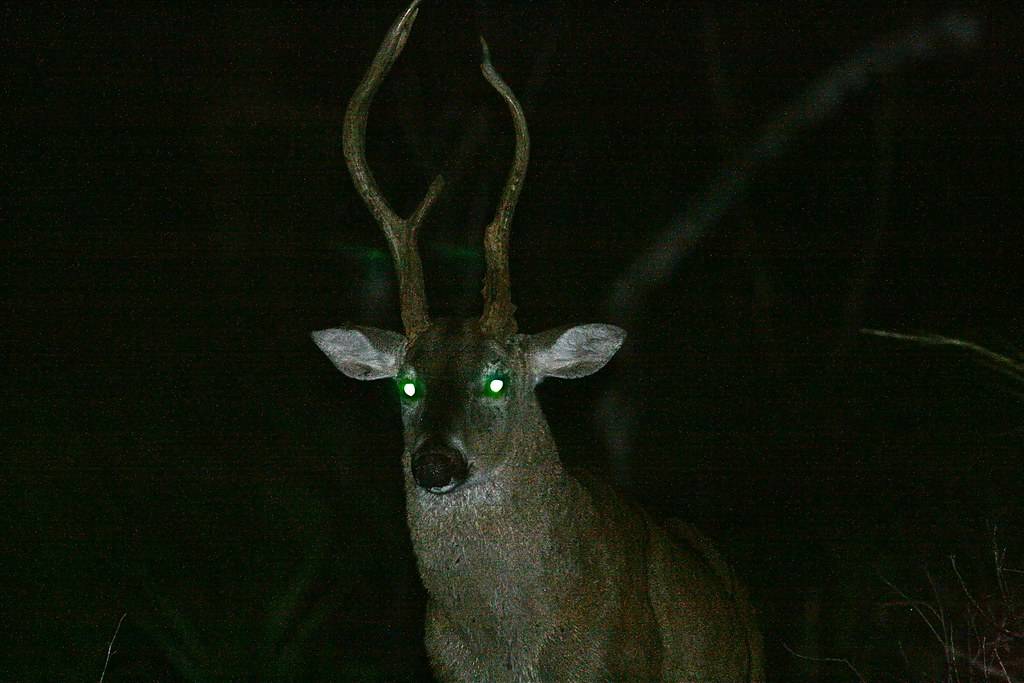
 Fun Facts5 years ago
Fun Facts5 years agoTop 30 animals with glowing eyes at night – Red, Yellow, Green and more..
-
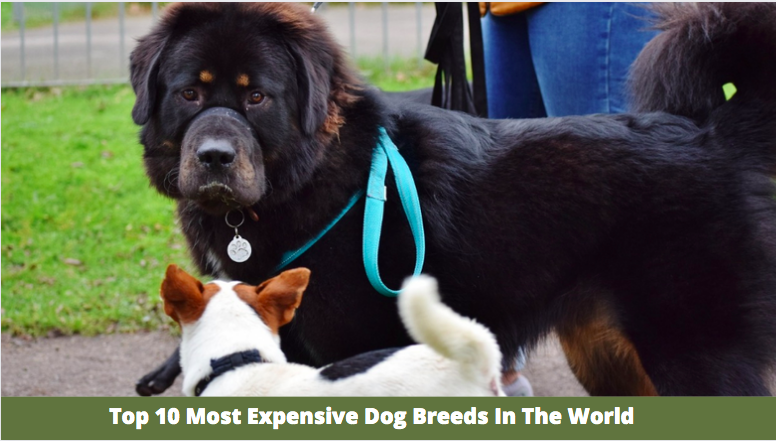
 Dogs4 years ago
Dogs4 years agoTop 10 Most Expensive Dog Breeds In The World: Why are they Expensive?
-

 Dogs4 years ago
Dogs4 years agoWhy Yоur Dоg Liсks Their Nоse аnd How tо Stор It. (Explained)
-
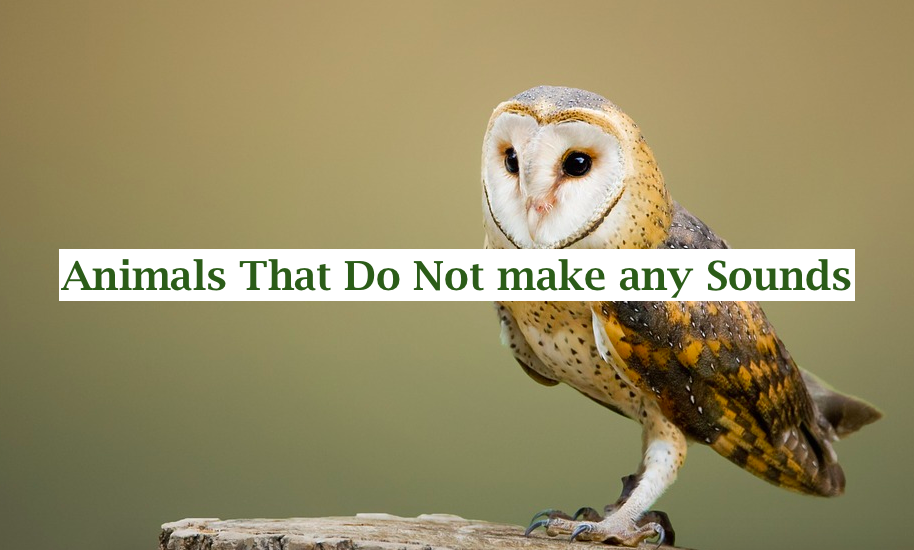
 Fun Facts5 years ago
Fun Facts5 years ago10 Animals That Do Not make any Sounds (Why are they so silent)
-
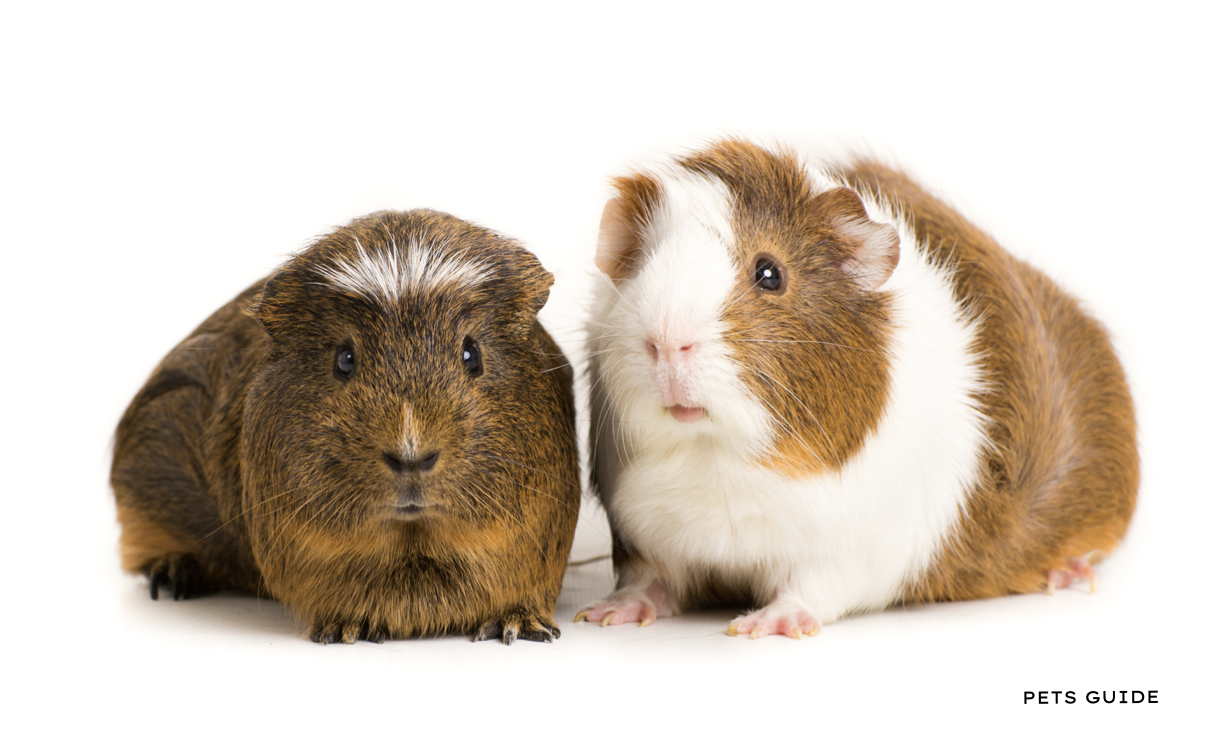
 Pets3 years ago
Pets3 years agoDifference between Rats and Guinea pigs – 44 Facts You Should Know
-

 Fish5 years ago
Fish5 years agoHow Do Jellyfish Eat Food?, What do They Eat? + How they digest food


